Storytelling.
I discovered this curious finding in policy and framing research while working towards improving my capacity for storytelling. Curious about how to improve, I (naturally) went to YouTube and found this TEDx video by Dr. Nat Kendall-Taylor:
In this video, he presents startling findings as to the impact of empathy on the advancement of policy reform. I created this heatmap to summarize the results of the study:
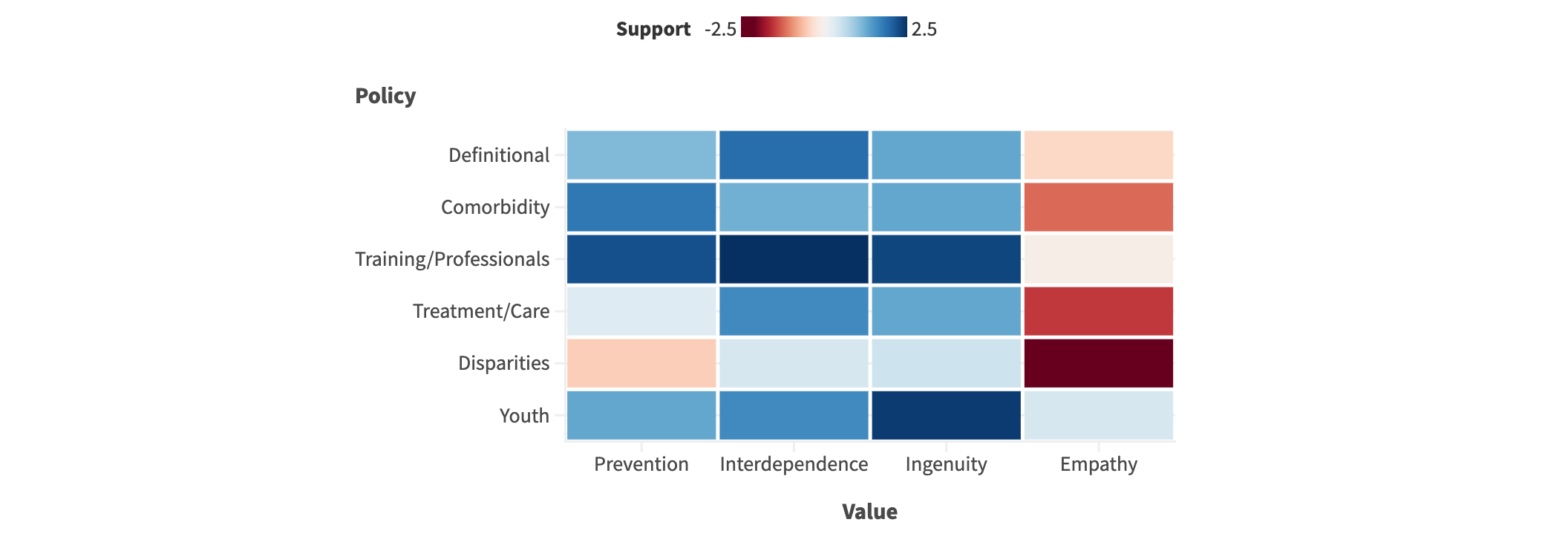
What you see above is a measure of the change in policy support following the participants' random assignment to messages about addiction policies in Canada that were framed using prevention, interdependence, ingenuity, and empathy.
Overall, framing the message with empathy (i.e., we need to identify with people with a substance use disorder and treat them compassionately) generally resulted in DECREASED support for policy reforms.
This got me thinking...
Why would framing a message for social change around empathy reduce support for policy changes?
I sat down as flashbacks throughout my career were delivered as examples of when I attempted to use empathy to create urgency around advancing science education reforms related to justice and equity. What was the response to such framing?
Well, it's been quite polarizing.
Just like that, I was sent pouring over the literature around framing and messaging to find an answer, and I think I have one:
While empathy builds crucial connections, it may not inspire action. Research suggests leading with empathy reduces support for systemic reforms, as it focuses on individuals over structures.
This results from our psychology and culture in a rather individualistic Western society. Suppose we recognize an issue as related to an individual. In that case, we expect that individual to overcome the problem and (could) find it repellent that society needs to offer support.
This brings on more questions:
- Which components of a message can clash with a culture or individual's worldview?
- Why do humans tend to maintain a status quo among us?
- How does framing differ from tone policing?
But more than anything, I want to know:
How can a message be framed to optimize support for systemic reforms?
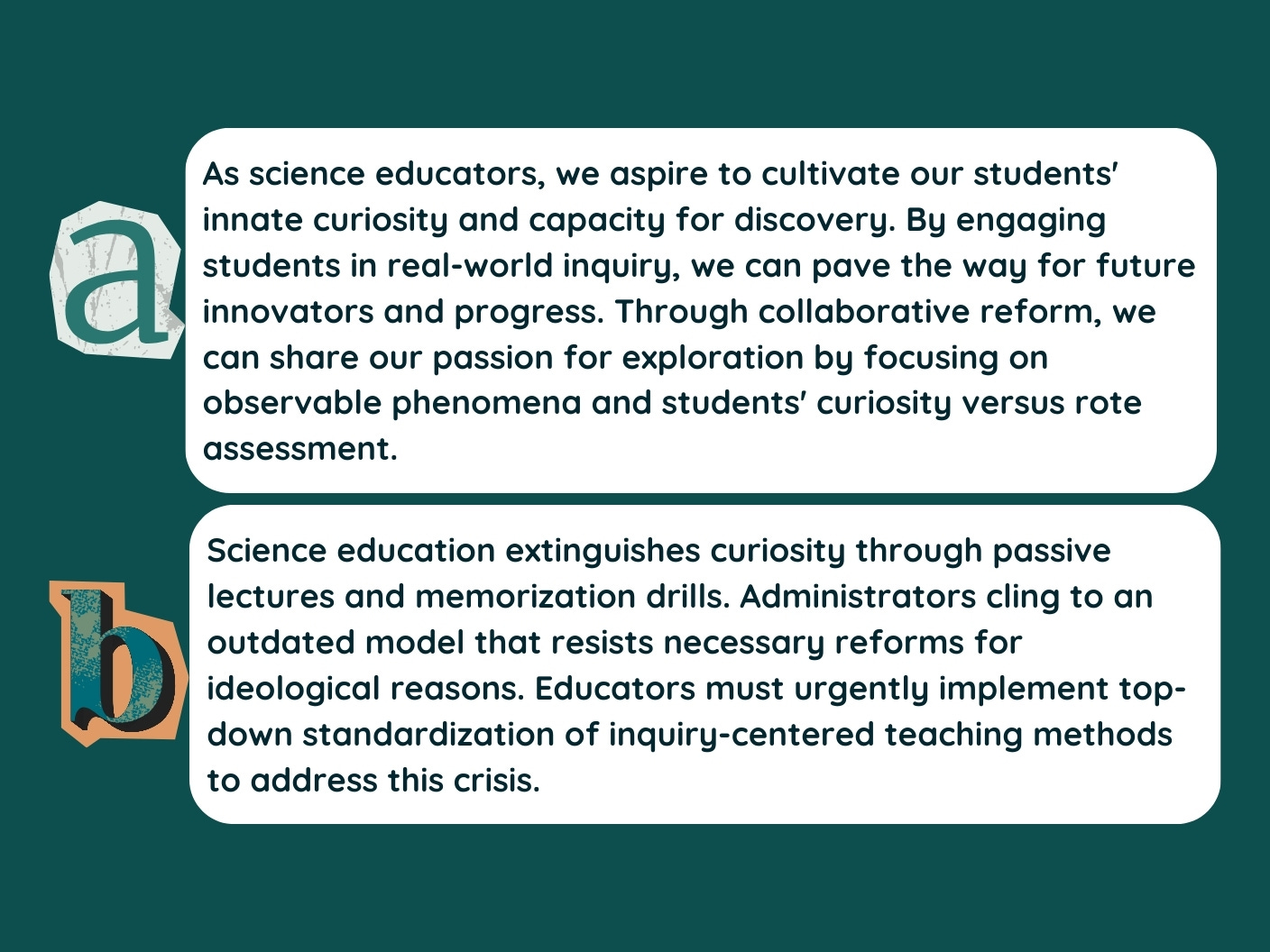
Reply with why, and stay tuned for more about the Impact of Framing.
Paper of the Week
This week, we're sharing Dr. Nat Kendall-Taylor's paper, from which the data presented in the above heatmap was collected.
Science Education Community Highlights
We want to highlight a paper and an interesting initiative going on this week in Science Education:
- Dr. Jacky Deng and fellow CAS Future Leaders with ACS released an excellent paper on science mentorship and leadership: click to read.
- Professor Caroline Hu's Science Communication and Comics course at the Massachusetts College of Art of Design regularly recruits scientists for collaborations! Don't miss this chance to work with a student and bring your research to life: click to learn more.
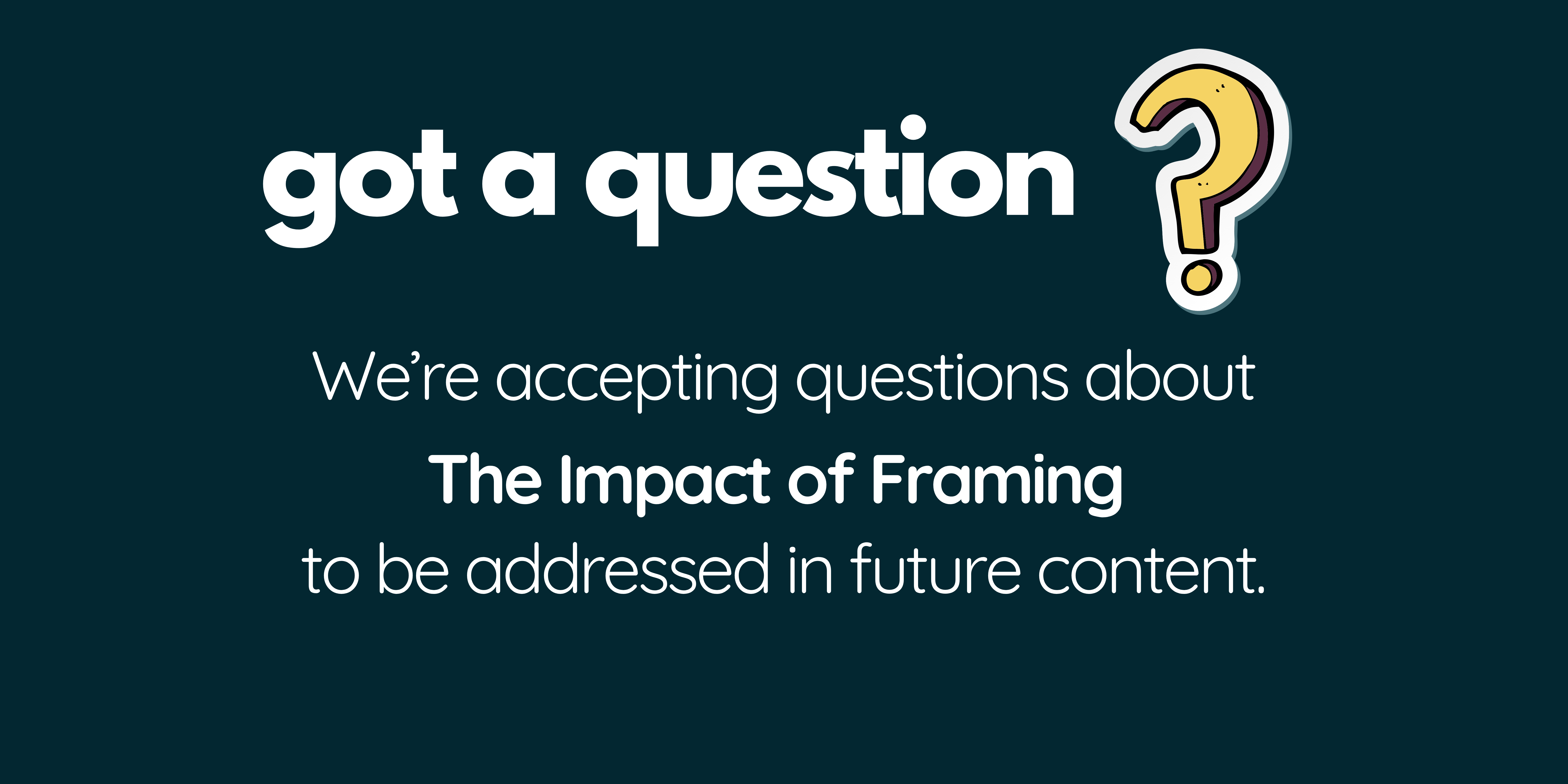
Next: Framing for Impact 🙌🏽 with Dr. Corrales
Drs. Corrales and Rosa discuss how framing impacts reforms in science education. How our work is framed strongly influences how it is received.
Click to Access ➡️About Cuvette Collective:
Cuvette Collective represents a community of educators and scientists dedicated to empowering the societal impact of STEM research.
We provide tailored tools, strategies, and insights to help scientists craft authentic, impactful broader impact plans that align with NSF priorities and their research focus.
Our engaging blog posts, interactive resources, and personalized consulting services support researchers in leveraging their scientific expertise to make a meaningful difference in society.
How to get involved:
1️⃣ Subscribe to our blog for the latest tips and insights.
2️⃣ Apply to participate in the Broader Impacts Excellence Program.
3️⃣ Reach out and let us know how we can help to enhance your broader impacts efforts.
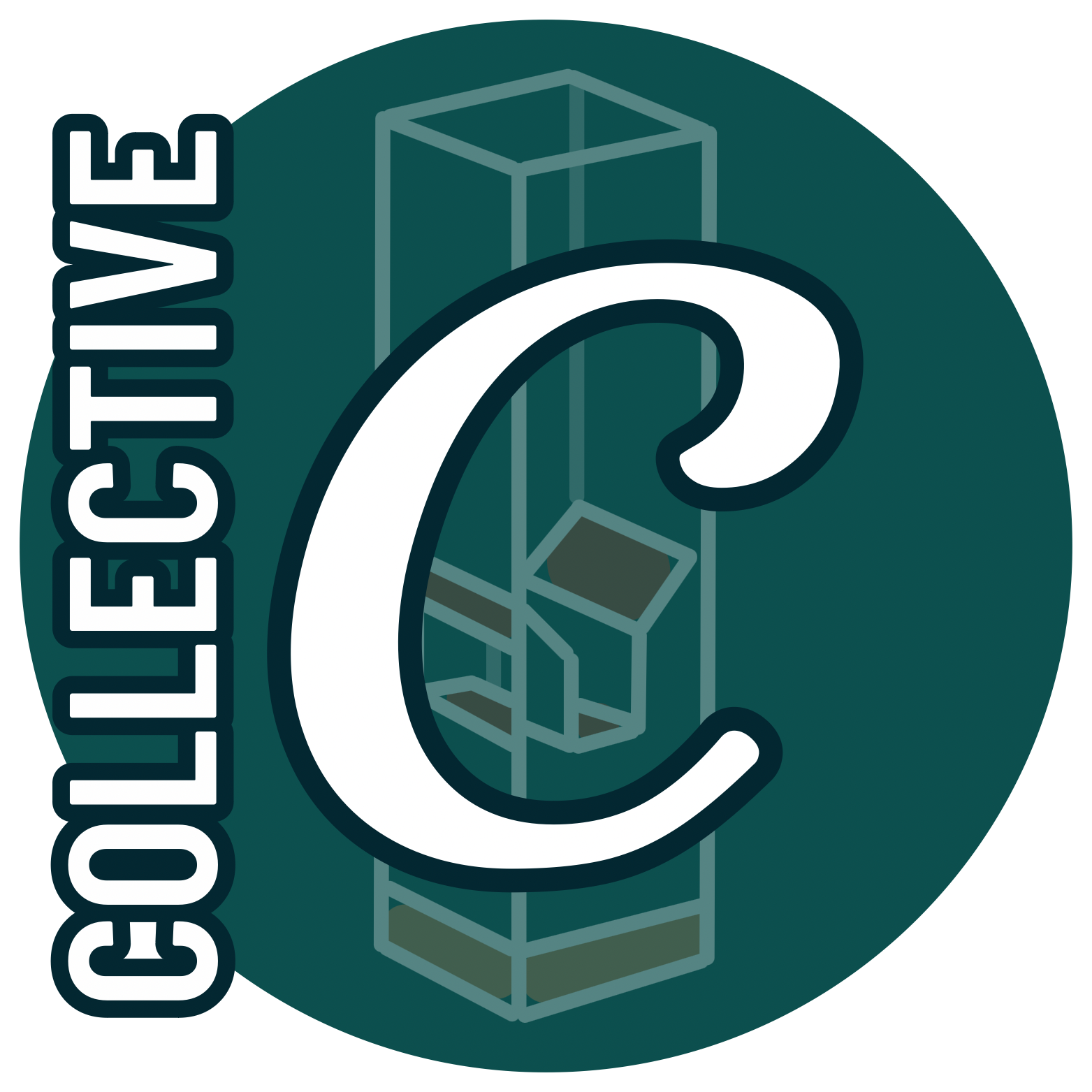


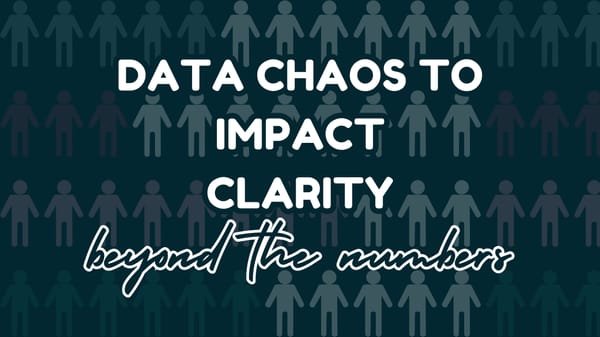
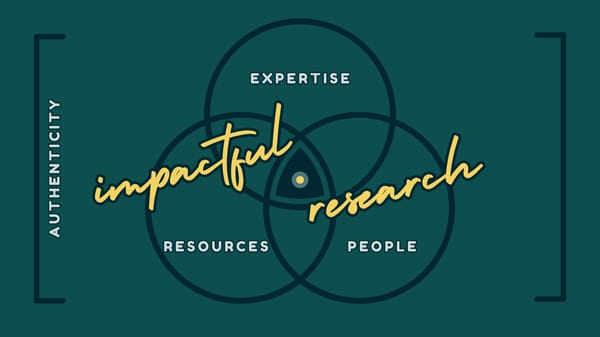
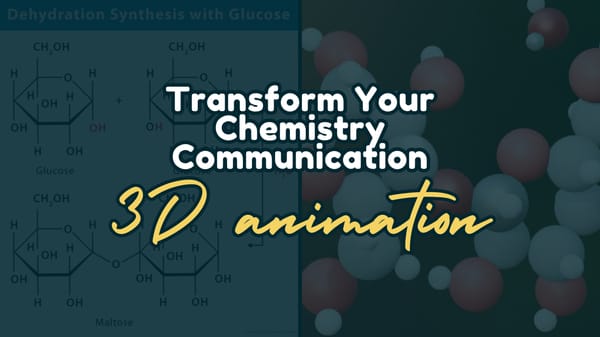

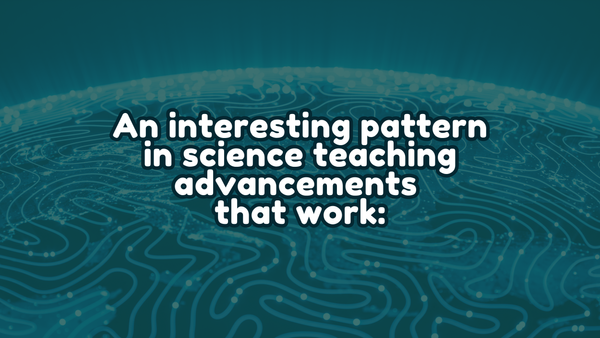
Member discussion